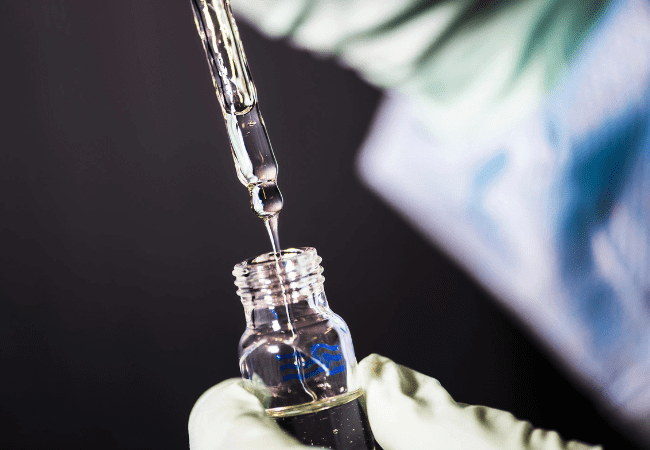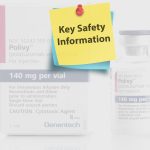Polivy (polatuzumab vedotin) has emerged as a significant advancement in the treatment of relapsed or refractory diffuse large B-cell lymphoma (DLBCL). The clinical trial results of Polivy have showcased its potential as a life-extending therapy for patients with limited options. This article delves into the key findings from these trials, the science behind Polivy, and how it is revolutionizing lymphoma treatment.
The Polivy Study: Pioneering Lymphoma Treatment
The Polivy study was a pivotal Phase III clinical trial designed to evaluate the efficacy and safety of Polivy in combination with bendamustine and rituximab in patients with relapsed or refractory DLBCL. The study enrolled patients who had not responded to prior treatments or had experienced a relapse after undergoing two or more lines of therapy. The primary endpoint of the trial was to assess the overall response rate (ORR), while secondary endpoints included progression-free survival (PFS), overall survival (OS), and safety.
The results were promising, with a significant proportion of patients responding positively to the Polivy combination therapy. The ORR in the Polivy arm was notably higher compared to the control arm, indicating that Polivy when combined with bendamustine and rituximab, offers a substantial therapeutic benefit. Moreover, the study improved PFS and OS, providing hope to patients with limited treatment options.
How Polivy Is Thought to Work: Targeted Therapy with Precision
Polivy is a first-in-class antibody-drug conjugate (ADC) specifically designed to target and kill cancer cells. The mechanism of action of Polivy involves the following key steps:
- Targeting CD79b: Polivy is engineered to bind to the CD79b protein, which is predominantly expressed on the surface of B-cells, including malignant B-cells in DLBCL. This targeted approach ensures that the drug is delivered directly to the cancer cells, minimizing damage to healthy cells.
- Internalization and Release: Once Polivy binds to the CD79b protein, the complex is internalized by the cancer cell. Inside the cell, the cytotoxic agent, monomethyl auristatin E (MMAE), is released. MMAE is a potent microtubule inhibitor that disrupts the cell’s ability to divide, leading to cell death.
- Cell Death and Immune Activation: The release of MMAE induces apoptosis (programmed cell death) in the cancer cells. Additionally, the destruction of cancer cells by Polivy may help activate the patient’s immune system, further enhancing the anti-tumor response.
Conclusion: Polivy's Impact on Lymphoma Treatment:
The clinical trial results of Polivy have shown that this innovative therapy offers new hope for patients with relapsed or refractory DLBCL. Its targeted mechanism of action, combined with significant improvements in response rates, progression-free survival, and overall survival, positions Polivy as a critical component in the evolving landscape of lymphoma treatment.
As research continues, Polivy is expected to play an increasingly important role in the management of DLBCL, offering a lifeline to patients who have exhausted other treatment options. The ongoing studies and real-world data will further elucidate Polivy’s long-term benefits, solidifying its place as a cornerstone in lymphoma therapy.
What is Polivy, and how does it work in treating lymphoma?
Polivy (polatuzumab vedotin) is an antibody-drug conjugate (ADC) specifically designed to target and destroy cancer cells in lymphoma, particularly relapsed or refractory diffuse large B-cell lymphoma (DLBCL). It binds to the CD79b protein on B-cells, delivering a cytotoxic agent directly to the cancer cells, which disrupts their growth and leads to cell death.
What were the key findings from the Polivy clinical trials?
Polivy’s clinical trials showed a significant improvement in the overall response rate (ORR) when combined with bendamustine and rituximab. Patients in the Polivy arm experienced longer progression-free survival (PFS) and overall survival (OS) rates compared to those receiving alternative therapies, offering new hope for patients with limited treatment options.
Are there any common side effects associated with Polivy?
Common side effects of Polivy include low blood counts, fatigue, nausea, and neuropathy. Although many patients tolerate Polivy well, it’s essential to discuss potential side effects with a healthcare provider to understand how best to manage them.
How can I buy Polivy online in India?
Patients and caregivers looking to buy Polivy online in India can contact reliable pharmaceutical providers like the Indian Pharma Network, which facilitates the legal supply of Polivy. Always ensure you are buying through a verified source to receive genuine drugs. For more details, contact Indian Pharma Network (IPN) via Call/WhatsApp: +91 9310090915 or TOLL-FREE: 1800-889-1064.
Can Polivy be used for the initial treatment of lymphoma?
Currently, Polivy is approved for use in relapsed or refractory cases of DLBCL, meaning it is generally considered after other treatments have been tried. Researchers are actively studying its potential in earlier stages of lymphoma to understand if it can benefit a broader patient group.
Where can I buy Polivy in major Indian cities?
Polivy (polatuzumab vedotin) is accessible across many Indian cities through trusted pharmaceutical providers. Send your inquiries via Call/WhatsApp: +91 9310090915 to buy Polivy in New Delhi, Noida, Mumbai, Kolkata, Chennai, Bangalore, Hyderabad, Ahmedabad, Pune, Jaipur, Lucknow, Kanpur, Nagpur, Indore, Bhopal, Patna, Chandigarh, Surat, Thane, Ludhiana, and Varanasi. For assistance and to ensure you receive genuine Polivy medication.
References:
https://www.polivy.com/newly-diagnosed/rchp.html
https://www.polivy.com/newly-diagnosed/rchp/results/clinical-trial-results.html






